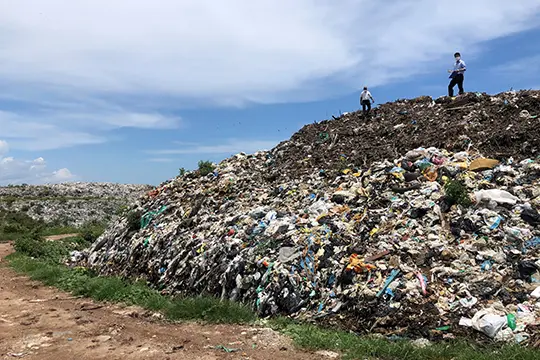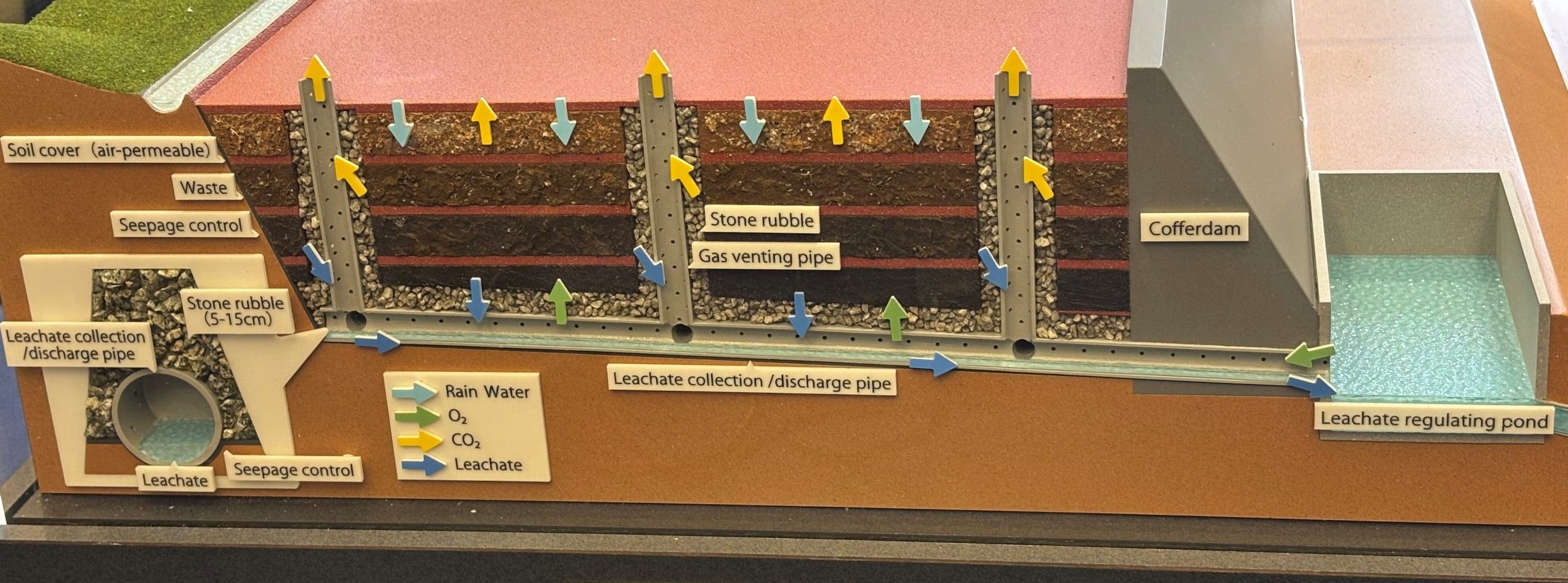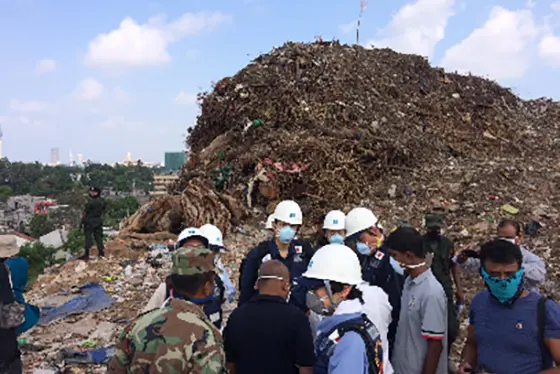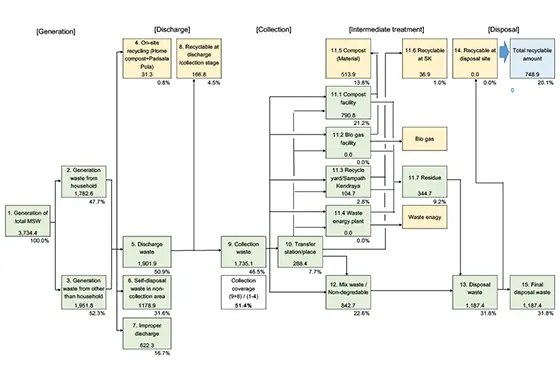
We are dedicated to building circular economies, fostering sustainable societies, and enhancing climate change resilience in developing countries. Our comprehensive services support aid agencies, international organizations, foreign government agencies, Japan’s Ministry of the Environment, and private enterprises through policy recommendations, research, planning, technology development, and technical assistance.
Service Overview
- Policy Recommendations and Research We provide expert policy recommendations and conduct thorough research to guide the development of effective strategies and frameworks for sustainable development and circular economy.
- Data Collection and Analysis Our team excels in collecting and analyzing basic data as well as conducting renewable energy potential assessments, recycling surveys, material flow analysis, financial and economic analysis & modeling, and more. We leverage the latest technologies, such as landfill site mapping using drones, to gather accurate and comprehensive information and provide critical insights that support informed decision-making and strategic planning. Our robust data collection and analysis capabilities ensure we deliver precise, actionable intelligence tailored to the unique needs of each project.
- Master Plan Development We assist in formulating comprehensive master plans that align with the developmental goals of the recipient country. Our approach involves close collaboration and continuous dialogue with local government agencies to ensure the plans are co-created, culturally relevant, workable, and effectively address the unique challenges and opportunities within the country. Our tailored master plans serve as strategic blueprints for long-term sustainable development and circular economy initiatives, fostering resilience and growth.
- Legal Framework Development We analyze the existing legislation to identify gaps and support the drafting and implementation of laws and regulations that facilitate sustainable waste management practices and environmental protection.
- Institutional and System Development Our services include the development of institutions and systems to support sustainable practices, including waste management infrastructure and governance frameworks.
- Feasibility Studies for Waste Management Facilities We conduct feasibility studies, planning, and design for waste management infrastructure, including final disposal sites, waste transfer stations, recycling facilities, and Waste-to-Energy plants. The potential impacts of projects are carefully assessed, particularly with respect to environmental and social considerations.
- Government Procurement Support We assist government agencies in the procurement process, ensuring transparent, efficient, and effective acquisition of goods and services necessary for project implementation.
- Database Development We design and develop robust databases to support data-driven decision-making and the efficient management of environmental and waste management projects. We have a proven track record in developing database systems in the field of municipal solid waste, plastic, and e-waste.
- Technical Training in Japan/Capacity Building In addition to on-site training, we also arrange technical training programs in Japan, providing hands-on learning experiences and knowledge transfer to enhance the skills and expertise of professionals from all over the world. In the case of regional projects, we can organize study tours in fellow developing nations facing similar challenges to provide valuable opportunities for mutual learning and exchange of best practices.
- Environmental Education and Awareness-Raising Whether it is to inform residents about the introduction of new waste management practices or to educate children on sustainable practices, we have experience in organizing interactive community workshops, school outreach programs, and media campaigns. These initiatives build local capacity, promote environmental stewardship, and ensure the full understanding and cooperation of all stakeholders.
- Fukuoka Method The Fukuoka Method is an efficient and inexpensive landfill management technique based on a semi-aerobic process to accelerate waste decomposition and reduce environmental impact, providing significant benefits to developing countries where poorly managed open dumps can have dramatic effects on their surroundings. Our engineers are qualified to support the construction of such landfill sites and train local staff to implement and operate this method effectively.
Key Features
- Expert Knowledge: Our team comprises experts in environmental policy, sustainable development, circular economy, and civil engineering.
- Comprehensive Solutions: We offer end-to-end solutions, from policy recommendations and data analysis to infrastructure planning and legal framework development.
- Global Collaboration and Local Presence: Through our subsidiaries in Thailand, the Philippines and Sri Lanka, as well as an extensive network of local consultants, we are aware of the latest trends and have access to up-to-date information.
- Multilingual Capabilities: Our international team can communicate in English, French, Arabic, Portuguese, Spanish, Sinhala, and Chinese, allowing us to implement projects anywhere in the world.
Project Examples
Project for Promoting Circular Model of Environmentally Sound Solid Waste Management in Urban Areas (Kenya) (JICA, 2024-Present)
Promoting climate innovation and partnership for transition towards a deep decarbonization of society by the implementation of a Fukuoka method (semi-aerobic landfill) project for waste management in Beja, Tunisia (UNIDO-JCM scheme funded by Ministry of the Environment of Japan, 2025-Present)
Click for more information (UNIDO website)


